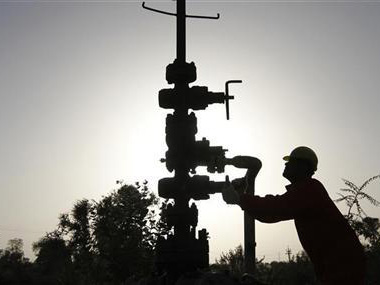A battle royale is now underway over gas pricing. Ranged on one side, either covertly or overtly, are Reliance Industries, ONGC and other state-run oil and gas companies; on the other side are gas users - primarily the fertiliser and power companies. And then there are the warring ministries - oil, finance, fertilisers and power - battling on both sides.
Under pressure from the gas producing companies, the UPA government set up the Rangarajan Committee which came up with a formula that would double gas prices from the current $4.2 per mmBtu (million metric British thermal units) to nearly $8.8 per mmBtu.
Rangarajan’s pricing was based on averaging traded prices at some global hubs, including the US’s Henry Hub and the UK’s National Balancing Point (NBP), among other things. It suggested that gas prices should be changed monthly based on its formula. There is already a godawful row on this recommendation.
While Reliance and British Petroleum were unhappy with even this price, the power and fertiliser companies threw a fit, and the oil ministry went into another balancing act. Recently it came up with a cabinet note recommending a price of $6.8 per mmBtu, to be fixed quarterly. This price is midway between the current price and what Rangarajan recommended, indicating that the oil ministry is trying for a compromise.
Business Standard, in an editorial today, suggests that gas should be priced based on the calorific value of imported coal - which would bring the price down to around $5.5 per mmBtu. The newspaper notes: “It bears repeating that gas pricing is highly contingent on variables that are specific to particular markets. Yet there are some broad facts about the Asian gas market that are relevant - for example, that liquid natural gas from the US is considered to become uneconomical in Asia when the price at the US’ Henry Hub is over $6 per mmBtu.”
[caption id=“attachment_809073” align=“alignleft” width=“380”] It is time to abandon gas pricing by committee and political cabal, prodded by interested businessmen. The markets will get it right much better than all of them put together. Reuters[/caption]
In India’s case, the paper argues that gas prices need to be linked to Indonesian coal import prices. “Given that India is a coal-dependent country and its coal import needs are rising rapidly, should it not use some form of coal equivalent pricing?”
The problem with all these formulae - whether it is the Rangarajan one or the oil ministry’s mash-up or someone else’s - is that they ignore a more fundamental point: why should the government at all be trying to decide this?
If gas, coal and other forms of energy operate in a free market, prices will vary depending on local factors, including demand-supply balance, import-export duties, availability of comparable fuels, and transport economics.
When governments try to fix prices, there is a 99 percent chance that they will get it wrong.
The only solution to the issue of gas pricing is to let commercial entities - whether it is power or fertiliser plants, or even domestic and industrial gas distribution companies - float global tenders for long-term supplies to meet base demand and top this up with spot purchases when they face sudden spikes in short-term demand.
It is not possible for babus sitting in Delhi to decide what is the “right” price for gas. There is no right price for gas. There are various prices, and users have to decide if these work for them or not.
In fact, even market pricing will not work for gas unless substitute fuels - oil, coal-bed methane, And coal, among other fuels - are also free to find their own levels.
Trying to decide long-term gas prices with the help of IAS officials and former Reserve Bank Governors is like trying to predict next year’s monsoon by looking at the skies this week. It’s no different from astrology.
It is time to abandon gas pricing by committee and political cabal, prodded by interested businessmen. The markets will get it right much better than all of them put together.
Evidence: the US managed to get gas prices down to $4 merely by encouraging shale gas entrepreneurship and letting the markets do the rest.
It is unlikely that grey eminences such as Rangarajan and politicians such as Veerappy Moily can work prices out better than the market.


)
)
)
)
)
)
)
)
)



